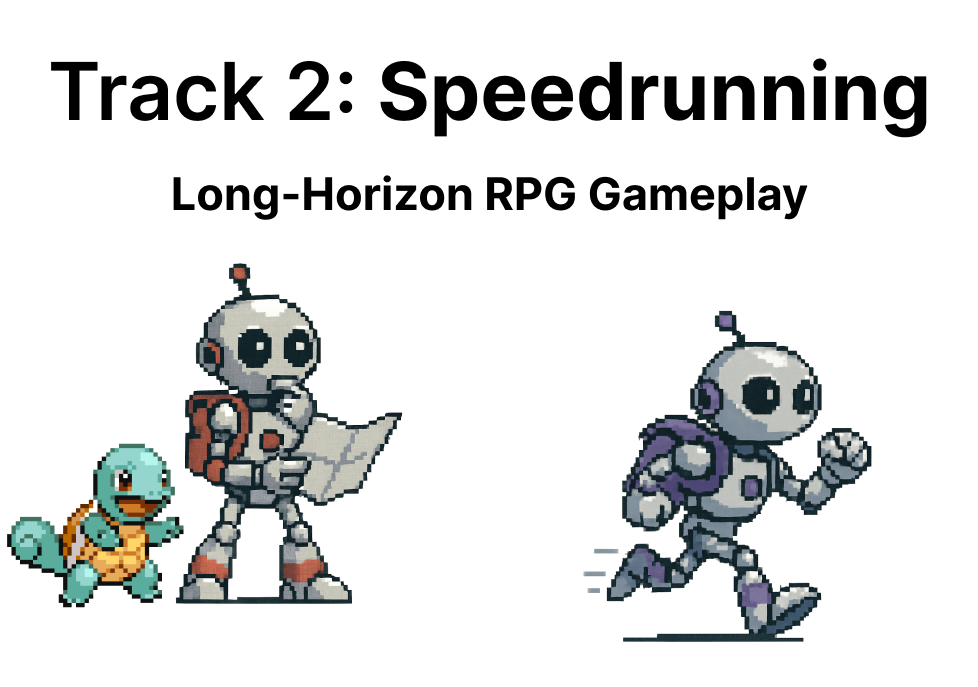
Long-horizon planning, efficient exploration, and strategic resource management are critical to succeeding in this track. Agents must learn to balance immediate objectives with long-term strategic goals, making decisions that span thousands of timesteps while adapting to the unpredictable nature of RPG gameplay.
The speedrunning challenge pushes AI systems to their limits in sequential decision-making, requiring sophisticated planning algorithms and efficient resource management to achieve optimal completion times in complex, open-world environments.
